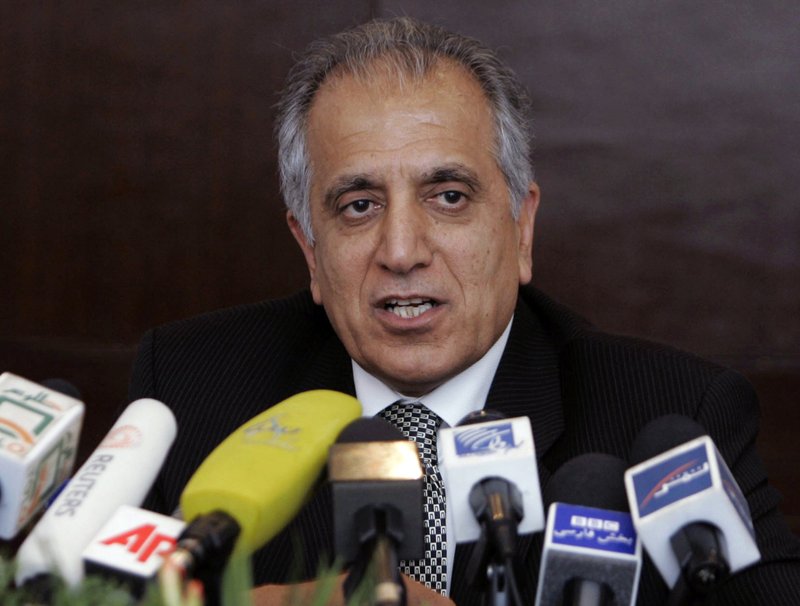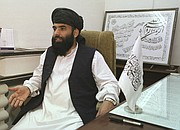ISLAMABAD -- The Taliban said Wednesday that they are not seeking a "monopoly on power" in a future administration in Afghanistan but are looking for ways to co-exist with Afghan institutions -- the most conciliatory statement to date from the militants.
The Taliban, who now control almost half of the country and carry out near-daily attacks mainly targeting Afghan security forces, issued the statement amid intensified U.S.-led talks to resolve the long-running Afghanistan war. U.S. envoy Zalmay Khalilzad reported this week that there had been "agreements in principle" toward a framework for peace with the Taliban.
The statement Wednesday by Taliban spokesman Suhail Shaheen appears aimed at easing fears among those worried about any agreement that includes the militants.
In an exclusive audio message to The Associated Press, Shaheen asserted that the Taliban want to live alongside their countrymen "in an inclusive Afghan world."
"After the end of the occupation, Afghans should forget their past and tolerate one another and start life like brothers. After the withdrawal, we are not seeking a monopoly on power," said Shaheen, who is based in Qatar, where the Taliban have a political office.
Khalilzad, the U.S. envoy, has been pressing the Kabul government to cobble together a strong negotiation team, but divisions within the country's so-called Unity Government and criticism from warlords-turned-politicians seeking greater involvement have hampered progress.
Khalilzad has urged President Ashraf Ghani to put together a team that has wide representation in order to ensure that what he calls a "framework for the future" would include rights for women, the rule of law and press freedom.
The Taliban have so far refused to negotiate directly with the Kabul government, which the insurgents often refer to as a puppet of the United States. Khalilzad has been pressing the Taliban into direct talks while focusing his discussions with the group on ensuring Afghanistan does not once again become a safe haven for terrorists.
Shaheen said another round of talks with the U.S. envoy is planned for Feb. 25 in Doha.
Before that meeting he said the U.S. and the Taliban will establish joint technical teams to work out details of a future U.S. troop withdrawal from Afghanistan as well as ways of preventing Afghanistan from again becoming a haven for terrorist groups such as al-Qaida.
Khalilzad, who held talks with the Taliban for six days last week in Qatar, said during a visit to Kabul on Monday that much more remains to be done but that there has been significant progress.
In turn, Ghani assured Afghans that no deals would be made without the Kabul government's full participation.
President Donald Trump has also expressed frustration with the U.S.' continued involvement in Afghanistan.
Atta-ul Rahman Salim, deputy head of the Afghan High Peace Council, which is made up of top Afghan clerics and other prominent figures, said the only way to peace is through direct talks with the government.
"If the Taliban really want to join the peace process, the best and easy way to start is with direct peace talks with the Afghan government," he said, adding that "there is a big difference between what you say and what you do."
Despite the Taliban insurgents' refusal to negotiate with Kabul, Shaheen's message appeared directed at a wide array of stakeholders in Afghanistan who could work together to hasten a U.S. troop pullout.
"Withdrawal of all foreign forces from Afghanistan is a shared responsibility," said Shaheen, adding that the Taliban did not want a return to the anarchy of the early 1990s when mujahedeen -- who had fought the Russians for 10 years until their withdrawal in 1989 -- turned their guns on each other, killing tens of thousands of civilians and destroying large swathes of the capital.
Information for this article was contributed by Rahim Faiez of The Associated Press.
A Section on 01/31/2019

